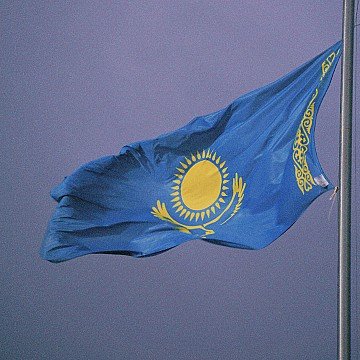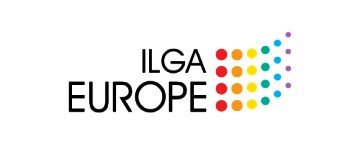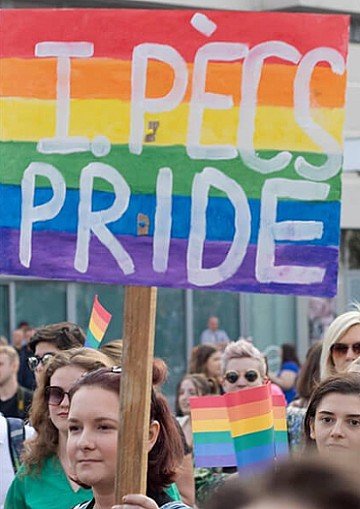ILGA-Europe, TGEU, OII Europe, IGLYO and EL*C jointly welcome the inclusion of SOGIGESC grounds in new EU Directive on minimum standards for equality bodies
On 7 May 2024, two new directives on minimum standards for equality bodies were officially adopted by the EU. One of the directives includes in its recitals and articles the grounds of gender expression, gender identity and sex characteristics in addition to sexual orientation. This marks the first time sex characteristics have been mentioned explicitly in an EU directive, and the second time gender identity and gender expression have been mentioned in an EU directive.1 This is an important milestone for the protection of LGBTI people in EU legislation, and follows two years of joint advocacy on these directives by OII Europe, TGEU, ILGA-Europe, EL*C and IGLYO.
The two new directives amend existing EU laws in order to add provisions to strengthen the role and independence of equality bodies in the EU, setting minimum standards regarding their mandates, tasks, independence, structure, powers, accessibility and resources. Both directives are subject to EU primary law including the Treaties and the Charter of Fundamental Rights (CFR). Article 19 TFEU and Article 21 CFR include sexual orientation in the list of protected grounds against discrimination, therefore both new directives cover the grounds of sexual orientation as regards the mandates of equality bodies in the EU.
However, we need to go beyond this to properly address the reality of discrimination. Limiting equality bodies’ mandates to working only on the grounds of discrimination explicitly named in the EU treaties means that many causes of discrimination are left out, remaining unrecognised and therefore not properly addressed. In the case of LGBTI people, who face discrimination based on their sexual orientation, gender identity, gender expression or sex characteristics (or a combination of these grounds), not including gender identity, gender expression and sex characteristics in the mandates of equality bodies means that equality bodies cannot properly address discrimination faced by trans and intersex people. In a time when discrimination against LGBTI people is on the rise, this is a welcome move.
Together, OII Europe, TGEU, ILGA-Europe, EL*C and IGLYO advocated for references to the grounds of gender expression, gender identity and sex characteristics to be included in both new directives.
Directive 2022/0401 amends directives in the field of equal treatment between persons irrespective of their racial or ethnic origin, equal treatment in matters of employment and occupation between persons irrespective of their religion or belief, disability, age or sexual orientation, equal treatment between women and men in matters of social security and the access to and supply of goods and services. This new directive required unanimous agreement in the EU Council. Despite references to gender identity, gender expression and sex characteristics being included in the text proposed by the European Parliament, due to opposition from a small number of EU countries, these references did not make it into the final text.
However, for the second Directive, the references did make it into the final agreed text. Directive 2022/0400 amends existing Directives 2006/54/EC and 2010/41/EU which cover the implementation of the principle of equal opportunities and equal treatment of men and women in matters of employment and occupation, including self-employment. This directive required qualified majority voting in the EU Council. Therefore, the references to the grounds of gender identity, gender expression and sex characteristics were included in the adopted text, in the context of the definition of a victim of discrimination:
Recital 23
“In addition to prevention, a central task of equality bodies is to provide assistance to victims of discrimination. Victims should be understood to encompass all persons who consider that they have experienced discrimination as referred to in Article 4 of Directive 2006/54/EC or in Article 4 of Directive 2010/41/EU, irrespective, for example, of their socio-economic status, political opinion, age, health, nationality, residence status, language, colour, level of literacy, gender, gender identity, gender expression or sex characteristics.”
Article 6
“Member States shall ensure that equality bodies are able to provide assistance to victims as set out in paragraphs 2 to 4. For the purposes of this Directive, ‘victims’ mean all persons, irrespective, for example, of their socio-economic status, political opinion, age, health, nationality, residence status, language, colour, level of literacy, gender, gender identity, gender expression or sex characteristics, who consider that they have experienced discrimination within the meaning of Article 4 of Directive 2006/54/EC or Article 4 of Directive 2010/41/EU.”
What’s next?
This achievement marks a milestone in the recognition of trans and intersex people in EU legislation and policy-making, and will contribute to further protection against discrimination for LGBTI people by equality bodies across the EU. We also extend our thanks to Equinet, the European Network of Equality Bodies, which led a successful campaign on these directives and supported our calls for the inclusion of the grounds of gender identity, gender expression and sex characteristics, based on the reality of discrimination against LGBTI people in the EU, as well as existing EU policy, legislation, and decisions of the EU Court of Justice. We will now work together with relevant authorities on the effective transposition of the equality bodies directives and we will continue to advocate for more comprehensive protection for LGBTI people in EU policy and legislation.


